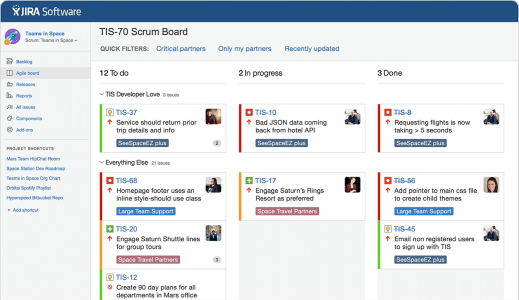
What is a project – Projects are fundamental to the way organizations achieve their goals, bring innovations to life, and manage change. Whether you work in business, engineering, construction, or virtually any industry, understanding what a project is and how to manage one effectively is essential.
In this article, we will explore its concept, its types, and the key elements that define a successful project.
What Is a Project?
A project is a temporary and unique endeavor with a specific set of goals, scope, and resources, designed to deliver a defined output within a predetermined timeframe.
Let’s break down this definition:
- Temporary: They have a definite start and end date. They are not ongoing operations but rather have a finite duration.
- Unique: Each project is distinct, with its own set of objectives and requirements. Even if you’ve executed similar projects before, there will always be unique aspects to consider.
- Goals: They are initiated to achieve specific objectives or outcomes. These goals could be creating a new product, implementing a system, organizing an event, or achieving any desired result.
- Scope: They have a defined scope that outlines the work to be done, the resources needed, and the expected deliverables.
- Resources: They require resources such as people, materials, budget, and time to accomplish their objectives.
- Timeframe: They are time-bound. They have a set timeframe within which they must be completed.
Types of Projects
Projects come in various forms, depending on their nature and purpose. Here are some common types of projects:
- Construction Projects: These involve building physical structures like houses, bridges, and office buildings.
- Information Technology (IT) Projects: These focus on developing software, implementing new technologies, or managing IT infrastructure.
- Research Projects: Aimed at discovering new knowledge, conducting experiments, or exploring scientific inquiries.
- Marketing Projects: Involve campaigns, product launches, market research, and branding initiatives.
- Event Projects: Planning and organizing events like conferences, weddings, or festivals.
- Business Projects: Cover a broad spectrum of activities, including strategic planning, mergers and acquisitions, and process improvements.
- Engineering Projects: Involve designing and creating complex systems, machinery, or industrial facilities.
Key Elements of a Project
To successfully manage a project, you must understand and address its key elements:
- Project Objectives: Clearly define the project’s goals and what it aims to achieve. Objectives should be specific, measurable, achievable, relevant, and time-bound (SMART).
- Project Scope: Determine the boundaries of the project. What is included and, equally important, what is not included? Scope creep, or uncontrolled expansion of the project scope, can be a significant challenge.
- Project Plan: Create a detailed project plan that outlines tasks, timelines, dependencies, and resource allocation. Project management methodologies like Agile, Waterfall, and Scrum can help structure your plan.
- Resources: Identify and allocate the necessary resources, including human resources, budget, materials, and equipment.
- Project Team: Assemble a capable and motivated project team with the right skills and expertise.
- Risk Management: Assess potential risks and develop a risk mitigation plan to address uncertainties that may impact the project.
- Monitoring and Control: Implement mechanisms to track project progress, manage changes, and ensure the project stays on course.
- Communication: Establish effective communication channels to keep stakeholders informed and engaged throughout the project lifecycle.
- Quality Management: Define quality standards and processes to ensure the project’s deliverables meet the required quality levels.
- Closure: When the project is completed, close it out systematically. Evaluate its success, capture lessons learned, and celebrate achievements.
Conclusion
Projects are the building blocks of innovation and progress in organizations. Understanding what a project is and how to manage it effectively is a valuable skill that can help individuals and teams achieve their objectives efficiently. By defining project objectives, managing scope, planning meticulously, and addressing key project elements, you can increase the likelihood of delivering successful projects, regardless of their type or complexity.




Be the first to comment